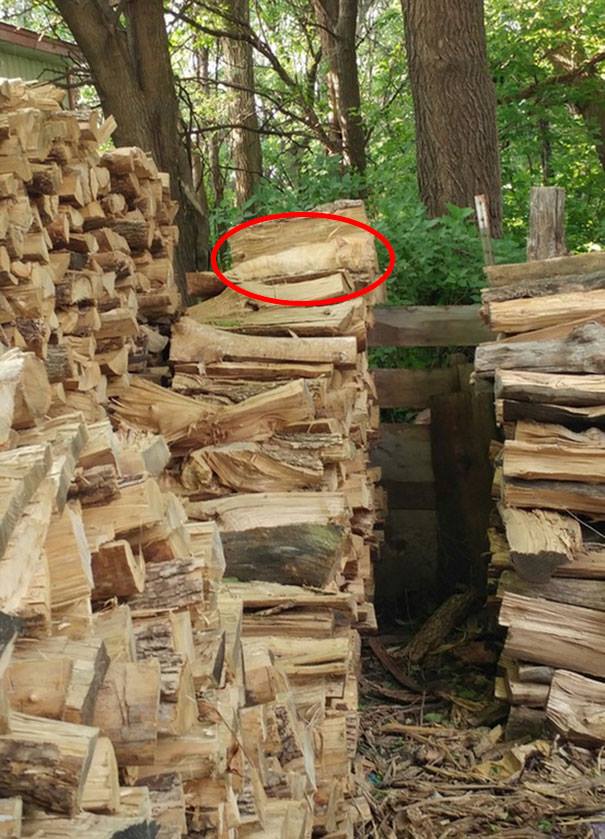Always Use always_inline In BPF Programs
TL;DR
Recently, I solved a tricky bug in a BPF program. Because inline instead of always_inline was used to declare a function, when the function body grew big, the compiler decided to not inline it. Then the BPF program was not able to be loaded due to some verification error. My takeaway is, always use always_inline in BPF programs to avoid surprise unless you know the BPF verifier well.
Problem Statement
We have a BPF program like this:
1
2
3
4
5
6
7
8
9
10
11
12
13
struct cb_space {
//...
};
static int inline foo_internal(struct __sk_buff* skb, struct cb_space* cb) {
//... Use skb
//... Use cb
}
SEC("classifier/foo")
int foo(struct __sk_buff* skb) {
return foo_internal(skb, (struct cb_space*)&(skb->cb));
}
In one recent change, 2 lines were added to foo_internal. After that we got an error from BPF verifier, which caused a BPF program load failure. I spent a lot time debugging this issue. It is intuitive to suspect the two newly added lines when everything works perfectly fine without them. The true devil hides really well because I focused only on the function body but not the function declaration.
Debug
The error thrown by BPF verifier is:
1
2
3
4
5
6
7
8
9
10
11
12
13
14
15
16
17
18
19
20
21
22
23
24
25
26
27
28
29
30
libbpf: Error loading ELF section .BTF: -22. Ignored and continue.
libbpf: load bpf program failed: Permission denied
libbpf: -- BEGIN DUMP LOG ---
libbpf:
0: (bf) r2 = r1
1: (07) r2 += 48
2: (85) call pc+3
caller:
R10=fp0,call_-1
callee:
frame1: R1=ctx(id=0,off=0,imm=0) R2=ctx(id=0,off=48,imm=0) R10=fp0,call_2
6: (bf) r7 = r2
7: (bf) r6 = r1
8: (b7) r1 = 0
9: (63) *(u32 *)(r10 -8) = r1
10: (b7) r1 = 1
11: (63) *(u32 *)(r10 -4) = r1
12: (bf) r2 = r10
13: (07) r2 += -4
14: (18) r1 = 0xffff881c41e62c00
16: (85) call bpf_map_lookup_elem#1
17: (15) if r0 == 0x0 goto pc+3
frame1: R0=map_value(id=0,off=0,ks=4,vs=8,imm=0) R6=ctx(id=0,off=0,imm=0) R7=ctx(id=0,off=48,imm=0) R10=fp0,call_2 fp-8=mmmm0000
18: (79) r1 = *(u64 *)(r0 +0)
frame1: R0=map_value(id=0,off=0,ks=4,vs=8,imm=0) R6=ctx(id=0,off=0,imm=0) R7=ctx(id=0,off=48,imm=0) R10=fp0,call_2 fp-8=mmmm0000
19: (07) r1 += 1
20: (7b) *(u64 *)(r0 +0) = r1
frame1: R0=map_value(id=0,off=0,ks=4,vs=8,imm=0) R1_w=inv(id=0) R6=ctx(id=0,off=0,imm=0) R7=ctx(id=0,off=48,imm=0) R10=fp0,call_2 fp-8=mmmm0000
21: (71) r1 = *(u8 *)(r7 +1)
dereference of modified ctx ptr R7 off=48 disallowed
At first, I thought it was due to invalid memory access so I carefully inspect each and every memory access in both the newly added lines and the rest of the function body. However, nothing illegal was found.
Finally, the following lines in the log dump caught my attention:
1
2
3
4
caller:
R10=fp0,call_-1
callee:
frame1: R1=ctx(id=0,off=0,imm=0) R2=ctx(id=0,off=48,imm=0) R10=fp0,call_2
If foo_internal is an inline function, how come there is a caller and a callee? Then I realized that the newly added lines might have caused the function body to be bigger than the inline threshold of the compiler thus the function is not inlined anymore. At this point, I still wasn’t sure if this was a problem but at least a function call to foo_internal was not expected – it was supposed to be inlined. Once I changed inline to always_inline, the problem was solved.
But why?
Root Cause
To better understand the root cause, let’s write a minimal BPF program that can’t be loaded.
1
2
3
4
5
6
7
8
9
10
11
12
13
14
15
16
17
18
19
20
21
22
23
#include <linux/bpf.h>
#include <bpf/helpers/bpf_helpers.h>
struct cb_space {
__u32 data;
};
static int __attribute__((noinline)) foo_func_internal(
struct __sk_buff* skb,
struct cb_space* cb) {
if (cb->data != 0) {
return 1;
}
return -1;
}
SEC("classifier/foo_func")
int foo_func(struct __sk_buff* skb) {
return foo_func_internal(skb, (struct cb_space*)&(skb->cb));
}
unsigned int _version SEC("version") = 1;
char _license[] SEC("license") = "GPL";
Note that I am using __attribute__((noinline)) to force it to be a function call. When we load above BPF program, we will get the following error:
1
2
3
4
5
6
7
8
9
10
11
libbpf: load bpf program failed: Permission denied
libbpf: -- BEGIN DUMP LOG ---
libbpf:
0: (07) r1 += 48
1: (85) call pc+1
caller:
R10=fp0,call_-1
callee:
frame1: R1=ctx(id=0,off=48,imm=0) R10=fp0,call_1
3: (61) r1 = *(u32 *)(r1 +0)
dereference of modified ctx ptr R1 off=48 disallowed
Interestingly, if we change this program to the following semantically identical one, then it can be loaded successfully.
1
2
3
4
5
6
7
8
9
10
11
12
static int __attribute__((noinline)) foo_func_internal(struct __sk_buff* skb) {
struct cb_space* cb = (struct cb_space*)&(skb->cb);
if (cb->data != 0) {
return 1;
}
return -1;
}
SEC("classifier/foo_func")
int foo_func(struct __sk_buff* skb) {
return foo_func_internal(skb);
}
Apparently, the problem is the access (or dereference) of function parameter cb. The last line of the error log has already told us this in its own language. I found this error message in BPF code but I was daunted by the 8000-line verifier code so I didn’t trace the call stack.
“dereference of modified ctx ptr R1 off=48 disallowed” What does it mean?
My understang is, in the function call to foo_func_internal, skb is a “ctx ptr” since it is a parameter which passes context between functions and it is a pointer. Therefore cb(i.e. skb->cb) is a “modified ctx ptr” because it is the context pointer skb plus a 48-byte offset (See definition of __sk_buff). In foo_func_internal, we dereference the value of cb (cb->data is equivalent to *cb) and that is disallowed.
In the second program, cb is a local pointer variable instead of a “modified ctx ptr” thus it can be dereferenced. The reason is, to foo_func_internal in the first program, cb is skb plus a (unknown) non-zero offset. The verifier doesn’t want to risk dereferencing it in case it points to some invalid memory address beyond the skb struct boundary. However, to foo_func_internal in the second program, cb is skb plus a known offset 48 bytes and a read size 4 bytes, which is within __sk_buff struct. It knows that this pointer is safe to dereference as long as skb is valid.



Comments powered by Disqus.